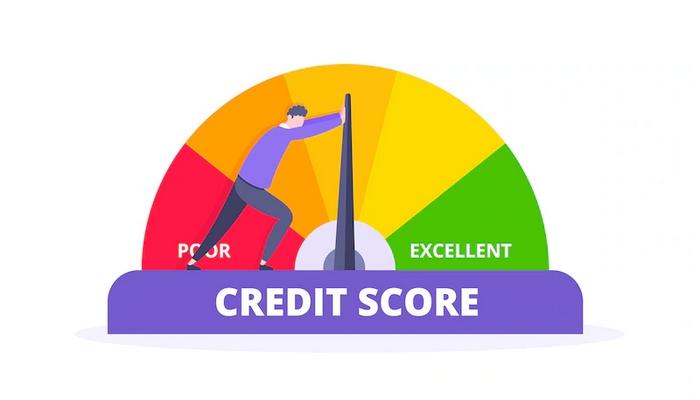Top Business Credit Cards in the US (2025): Maximize Rewards, Travel Perks, and Financial Flexibility
If you’re an entrepreneur or freelancer in the US, having a business credit card isn’t just a luxury—it’s a necessity. A business card helps you organize expenses, improve cash flow, and earn valuable rewards like points, miles, and cashback. Plus, separating personal and business expenses is crucial for financial health and tax reporting.
Many business cards also offer exclusive perks for travel, advertising, and software—common spending categories for growing companies.
In this article, we’ll explore the top business credit cards in the US, break down their advantages, and help you choose the best one for your needs.
Top Business Credit Cards in the US (2025 Edition)

1. American Express® Business Gold Card
Best for: Earning points in your top spending categories.
Key benefits:
- 4x Membership Rewards points on the 2 categories where your business spends the most (up to $150,000 per year).
- Purchase protection and extended warranty.
- Access to business concierge services.
Annual Fee: $375
Tip: Great for companies spending heavily on tech, marketing, or travel.
2. Chase Ink Business Preferred® Credit Card
Best for: Travel rewards and generous sign-up bonuses.
Key benefits:
- 3x points on travel, digital advertising, and internet/phone services (up to $150,000 per year).
- 100,000 bonus points after spending $8,000 in the first 3 months (worth $1,000 in travel).
- Cell phone protection up to $600 per claim.
Annual Fee: $95
Use case: If your business invests in Google Ads and team travel, this card helps you earn faster and reinvest in future trips.
3. Capital One Spark Cash Plus
Best for: Unlimited cashback.
Key benefits:
- 2% cashback on every purchase, no caps.
- $1,200 sign-up bonus after spending $30,000 in the first 3 months.
- No APR—this is a pay-in-full monthly card.
Annual Fee: $150
Ideal for: Business owners who prefer straightforward cashback without complex categories.
4. Brex Card
Best for: Startups and tech-focused companies.
Key benefits:
- No personal credit check required.
- Up to 8x points on categories like software, travel, and dining.
- Seamless integration with accounting platforms like QuickBooks and NetSuite.
Annual Fee: $0
Unique feature: Credit limit is based on your business bank account activity, not personal credit.
5. Bank of America® Business Advantage Customized Cash Rewards
Best for: Small businesses that want more control over rewards.
Key benefits:
- 3% cashback in a category of your choice (gas, office supplies, travel, etc.).
- 2% at restaurants and 1% on all other purchases.
- No annual fee.
Sign-up bonus: $300 after spending $3,000 in the first 90 days.
Travel Benefits for Business Owners
Many business credit cards offer exceptional travel perks, such as:
- Airport lounge access.
- Travel insurance and rental car coverage.
- Discounts on hotels and airfare.
- Points that can be transferred to major airlines.
Pro tip: If you travel frequently, go for cards that offer flexible rewards programs like Amex Membership Rewards or Chase Ultimate Rewards.
Business Credit Card Stats You Should Know
- 65% of small businesses in the US use credit cards for funding or managing cash flow.
- Companies using rewards credit cards save an average of $1,200 per year through cashback or miles.
- Cards with accounting integrations can reduce time spent on financial reporting by up to 40%.
How to Choose the Right Business Credit Card
Every business has unique needs. To make the best choice, follow these simple steps:
1. Understand Your Spending
Where does your company spend the most—travel, software, advertising, or inventory?
2. Define Your Goals
Do you want cashback, travel points, or to build business credit?
3. Compare the Costs
Look at annual fees, late payment fees, and whether you must pay the balance in full monthly.
4. Review Extra Benefits
Things like purchase protection, travel insurance, and accounting integrations add real value.
5. Think Long-Term
Choose a card that will scale with your business as it grows.
Quick Comparison Table
| Goal | Recommended Cards |
|---|---|
| Simple cashback | Capital One Spark Cash Plus |
| Travel rewards | Chase Ink Business Preferred, Amex Gold |
| No annual fee, flexibility | Brex, Bank of America Cash Rewards |
| For startups | Brex |
| Big sign-up bonuses | Chase Ink Business Preferred, Spark Plus |
Bonus: Build Your Business Credit Profile
Many new entrepreneurs start by using their personal credit, but building a separate business credit history (with your EIN) is crucial if you want:
- Better loan offers.
- Higher credit limits.
- Fully separated personal and business finances.
Cards like Brex can help you start building credit without using your SSN.
How Business Credit Cards Help You Manage Cash Flow
One of the most valuable advantages of a business credit card is how it can smooth out your company’s cash flow. Unexpected expenses happen—equipment breaks, projects go over budget, or clients delay payments. A business card acts like a financial buffer that gives you time and flexibility.
Key ways credit cards improve cash flow:
- Grace periods: Most cards offer 25–30 days to pay without interest, giving you time to collect revenue before paying off the balance.
- Payment tracking: Easy-to-read monthly statements help you analyze spending patterns and budget accordingly.
- Employee cards with limits: Issue cards to employees with spending caps to control costs without slowing down operations.
- Deferred payments: Some business cards allow you to pay large purchases over time with low or no interest for an initial period.
Example: If your company buys inventory today and receives payment from customers in 30 days, a credit card with a 0% intro APR allows you to avoid taking out a short-term loan.
Bottom line: used wisely, credit cards can reduce dependency on loans, minimize interest, and give you the breathing room to grow.
Common Mistakes to Avoid When Using a Business Credit Card
Business credit cards are powerful tools—but only when used strategically. Misuse can lead to unnecessary debt or credit damage. Here are common pitfalls to avoid:
1. Mixing Personal and Business Expenses
Even if you’re a solo entrepreneur, avoid using your business card for personal purchases. It complicates your taxes and blurs your financial reporting.
2. Only Paying the Minimum
Carrying a balance and paying only the minimum racks up interest and reduces your available credit. Try to pay in full each month—or at least more than the minimum due.
3. Ignoring Annual Fees
Some cards come with high annual fees that only make sense if you maximize the rewards. If you’re not traveling or spending enough, switch to a no-fee card.
4. Applying Without a Credit Plan
Each card application results in a hard credit inquiry. Too many inquiries in a short time can hurt your credit score. Research first, then apply for one or two cards that fit your strategy.
5. Underusing the Card
Surprisingly, some businesses forget to put their big expenses on the card—missing out on valuable points or cashback. Use your card strategically for large purchases, recurring subscriptions, and travel bookings.
Quick tip: Set alerts or reminders to monitor your card’s usage, payment due dates, and rewards milestones.
Choosing the right business credit card can significantly impact your company’s finances. The right card will streamline your spending, offer valuable rewards, and even protect your business with travel and purchase insurance.
Whether you’re focused on travel perks, cashback, or building credit, there’s a card that fits your business needs.





